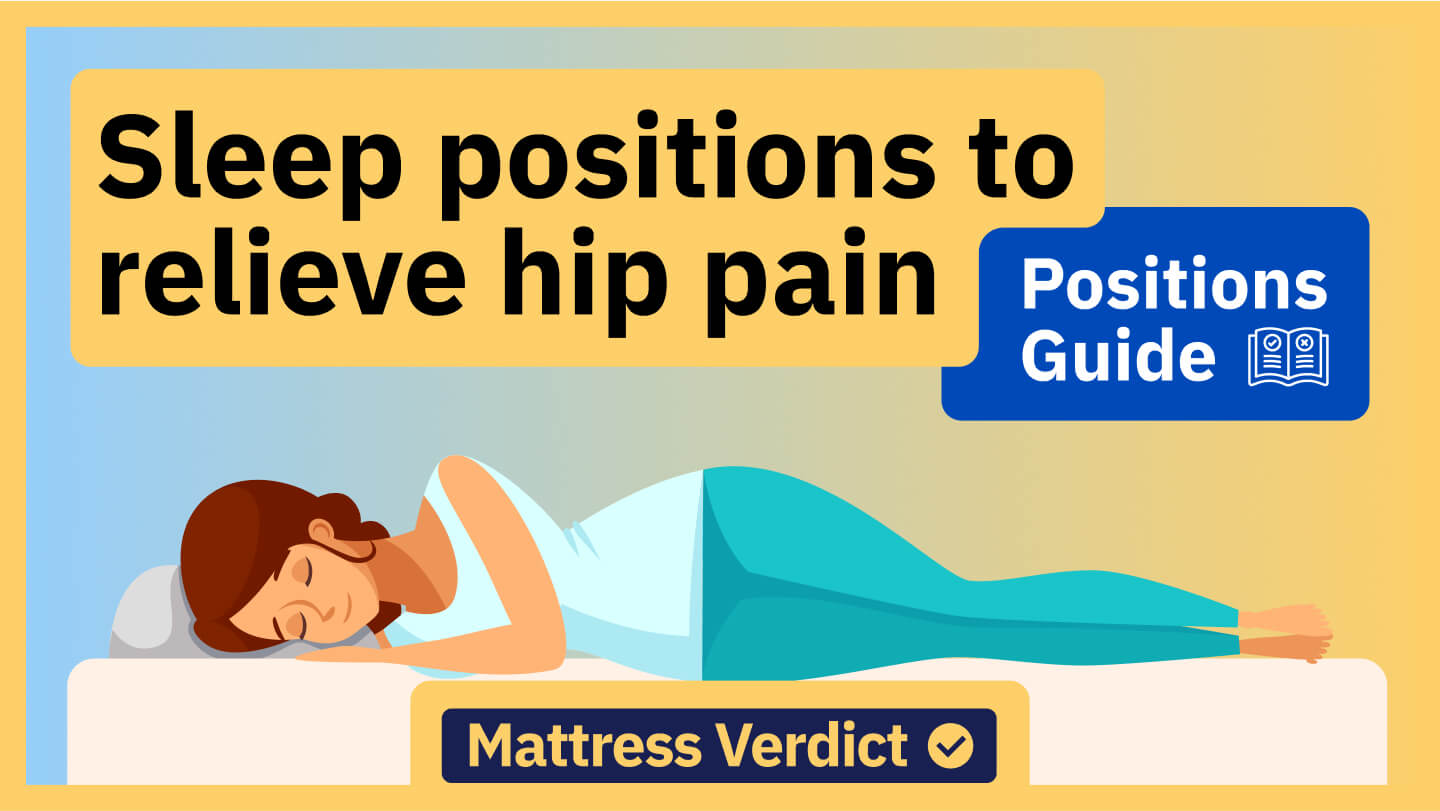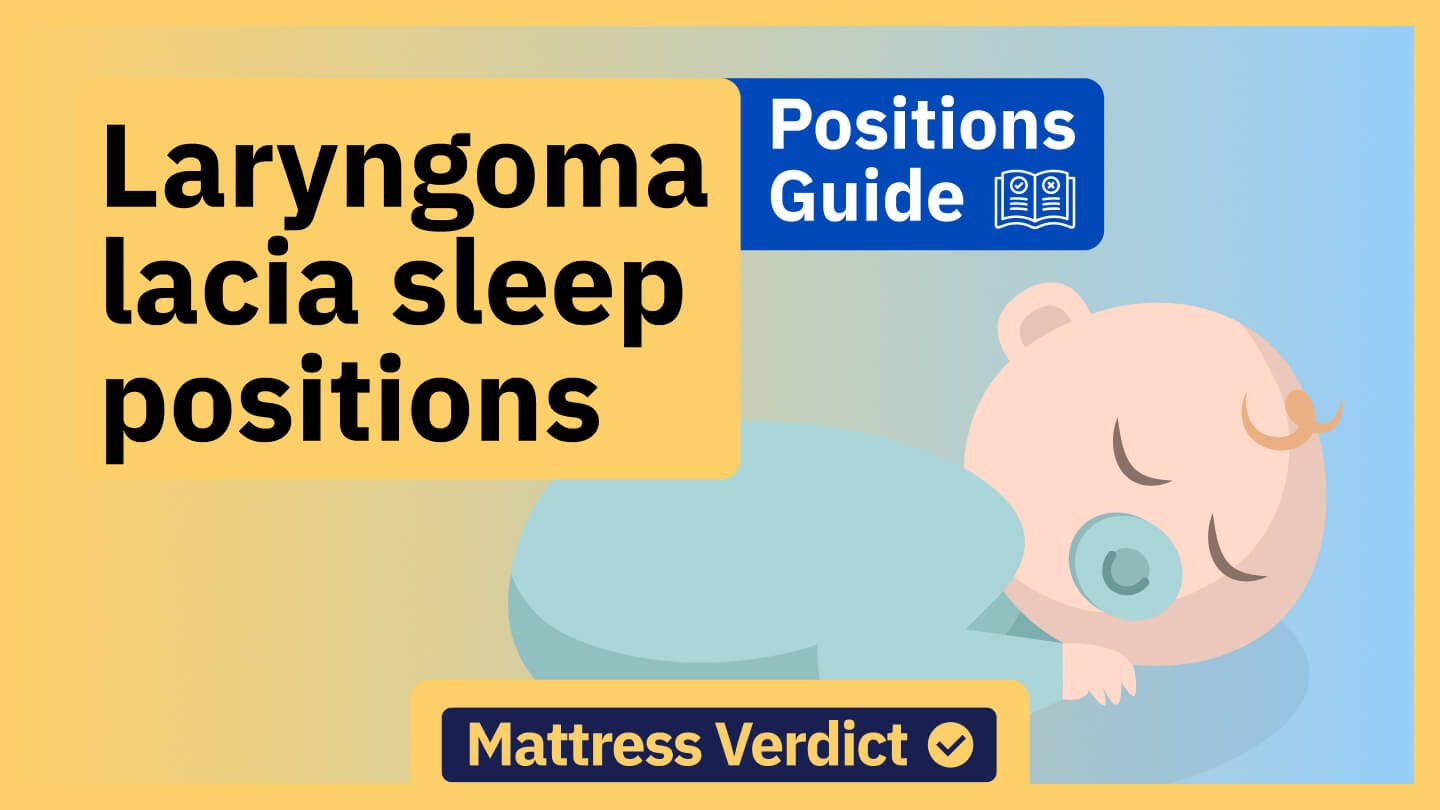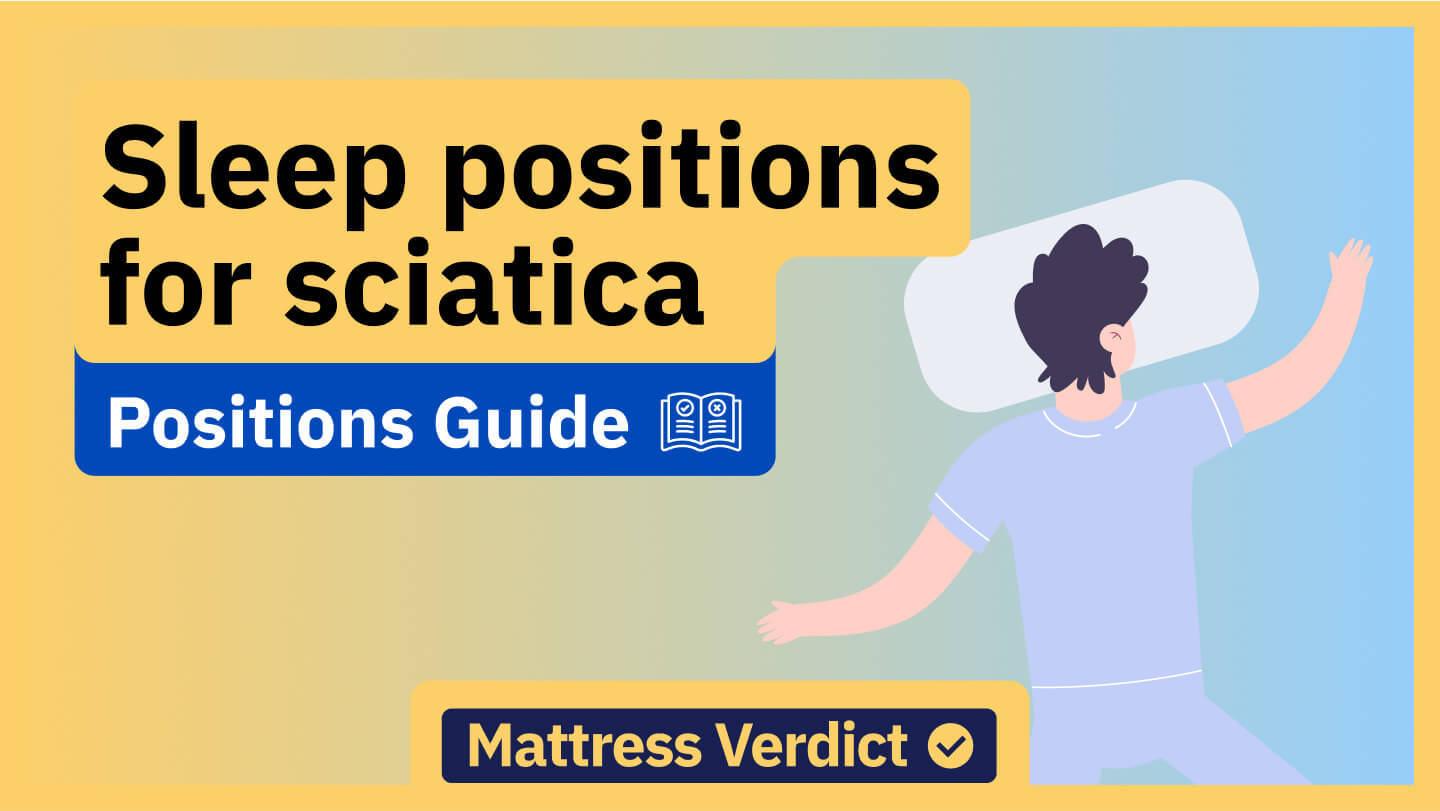

Sleeping with neck pain is a nightmare. The discomfort makes it impossible for you to sleep for long periods, leaving you stressed and tired after you wake. While many people might see neck pain as nothing they should be worried about, this condition could be a symptom of more serious health issues.
If you’re trying to find the best way to sleep with chronic neck pain, Mattress Verdict offers valuable tips for coping with this condition. You will also discover the best sleep positions for neck pain. This way, you can treat the symptoms of this condition and get the proper rest you deserve.
Key Takeaways
- Neck pain makes sleeping at night difficult.
- Neck pain might be a symptom of severe health challenges.
- Neck pain can be caused by injury and old age.
- Sleeping in the correct positions will reduce neck pain at night.
- You should consult a therapist if neck pain persists.
How to Sleep with Neck Pain
The most common factors behind neck pain are stress and spine misalignment. You can overcome these problems by using the right sleeping posture.
According to experts, here’s how to sleep to avoid neck pain.
Sleeping on Your Side
Side sleeping is the best sleeping position for neck pain. It is the best way to keep your head in a neutral position at night. Sleeping on your side also helps you cope with sleep apnea and reduces snoring.
Although medical professionals recommend side sleeping as the best sleeping position for neck and shoulder pain, here are a few tips you should remember.
- Avoid Very High Pillows: Overly high pillows will force your upper spine out of its resting position and increase the stress on your neck. The proper pillow sets your chin straight without causing your ear to move towards your shoulder.
- Use Extra Pillows: Place a pillow between the mattress and your side. You can also place a pillow between your knees to ease the pressure on your pelvis.
- Tuck Your Arms: Avoid placing your hands under your head while sleeping on your side. Wondering where to put your arms when sleeping on the side? You should fold your arms and place them in front of your body while lying on your side.
Sleeping on Your Back
Lying on your back is one of the most recommended sleep positions for sciatica and back pain. This position allows your spine to relax and maintain its original curves.
- Use Thin Pillows: Supporting your head with a thin pillow will slightly tilt your neck into the same position as when you stand.
- Raise Your Legs: Experts also recommend sleeping with your legs elevated to reduce pressure on your spine and lower back. Place a pillow under your legs to slightly raise them above your body.
- Use a Firm Mattress: You will get better results while lying on your back with a firm mattress. Standard mattresses will not hold your weight and could force your spine into uncomfortable positions. You can take the Mattress Verdict quiz to find the right mattress.
Causes and Symptoms of Neck Pain
Experts identify several factors that could be responsible for neck pain. The most common causes of neck pain include:
- Poor Posture: The most common cause of neck pain in young adults is poor posture. Slouching on a seat, lying on uneven surfaces, or lifting heavy loads without the proper support forces your spine out of its natural position. You could also develop neck pain from sleeping the wrong way.
- Injury: Injuring your spine in an accident could result in neck pain. You might also hurt the muscles and joints in your shoulders and upper back. Such accidents might make it impossible for victims to relax their necks or hold their heads in an upright position.
- Muscular Tension: When the neck and upper back muscles are tense, victims will experience significant discomfort. The most common cause of muscular tension is anxiety and prolonged physical stress.
- Herniated Discs: The soft plates between the spinal joints could slip out of position or rupture. This injury could stress or irritate your neck and lower back nerves. This condition might result in painful sensations in the neck.
- Osteoporosis: This condition makes the bones weak. When osteoporosis affects the bones in the spine, it could result in compression fractures. These fractures cause pain that could spread to the neck.
- Cancer: Tumors and cancerous growths that affect the spine, brain, thyroid, or jaws could cause some pain and discomfort in the neck.
- Compressed Nerves: Sometimes, the nerves in the neck can become pinched or compressed for several reasons. This occurrence could cause neck stiffness and pain.
- Cervical Spondylosis: As the cervical discs break down, our bodies generate bones to replace them. However, some new bone formations often pinch the spine and nerve roots.
Symptoms of Neck Pain
While the most common symptom of neck pain is the obvious discomfort, there are other subtle signs you should look for.
- Headaches
- Back Pain
- Muscle Spasms
- Numbness
- Impaired Vision and Hearing
- Weakness of arms and legs
- Difficulty in swallowing
- Concentration Difficulties
Alternative Remedies to Alleviate Neck Pain After and While Sleeping
If your neck hurts from sleeping, here are some alternative remedies to help you cope and sleep more comfortably.
Pain Relief Medication
You can treat severe neck pain from sleeping with over-the-counter pain relief drugs like aspirin and ibuprofen. The active compounds in pain relief medications will reduce pain and discomfort. However, some of these medications contain active agents that could upset your stomach and cause nausea. Therefore, you should consult a medical professional before using any pain relief drugs.
Exercise
Exercises such as stretching will help relax your neck and upper back muscles. You can effectively cope with neck pain by developing a light exercise routine. Here are some exercises you should consider:
- Roll your shoulders one at a time. First, backward and then forward in a circular motion.
- Move your head from side to side. Push it as far as you can without feeling any discomfort.
- Push your shoulder blades together and hold them in that position for a few seconds. Relax your shoulders before repeating the motion.
Perform these motions gently to avoid increasing your discomfort.
Ice Treatment
Applying ice is an effective way of treating injured and strained muscles. Experts recommend placing ice packs over affected areas for about 20 minutes. You can repeat this process a few times every day. Avoid leaving your skin in direct contact with ice. Use a cold compress instead.
Hot Baths
A hot shower will help relax the neck and upper back muscles. Also, hot baths trigger the release of endorphins that improve your mood and reduce stress and anxiety. Consider taking a hot bath before bedtime to prevent neck pain while sleeping.
Chiropractic Care or Massage
Professional chiropractors know how to handle stressed muscles and joints. This way, they can relax the tense muscles and pinched nerves responsible for neck pain. A professional massage, on the other hand, will help relax stiff neck muscles and improve circulation around your neck. Many health practitioners recommend deep tissue massages with topical creams for patients with severe neck pain.
See a Medical Professional
Chronic neck pain that interferes with your sleeping could be an indication of life-threatening health conditions. You should see a doctor if your condition does not improve. Timely tests and X-rays will help you identify any underlying health challenges and ensure you get the proper treatment.
Frequently Asked Questions
Is it better for your neck to sleep without a pillow?
If you are wondering, "Is it better for your neck to sleep without a pillow?" here's what you should know. Sleeping without a pillow while lying on your back or side is bad for your neck. But sleeping without a pillow is better if you are lying on your stomach. However, experts recommend that you sleep on your back or sides. This way, you prevent sleep apnea and other respiratory difficulties.
What are the red flags for neck pain?
If you often wonder, "What are the red flags for neck pain?" these are the signs you must watch for. Chronic headaches, extreme chills, muscle spasms, and throbbing joints could be symptoms of more severe health complications.
How do you sleep with a strained neck?
Here are some tips if you are wondering how to sleep with a strained, sore or stiff neck. Place a neck pillow to support your neck while lying on your side. This way, you prevent your neck from being twisted into uncomfortable positions at night. You could also place extra pillows by your side to stop you from rolling around while you sleep. Use a solid mattress that will support your weight and keep your spine in a neutral position.
How do you release tension in your neck fast?
If you are wondering, "How do you release tension in your neck fast?" here are some effective tips. Place a hot towel around your neck and leave it there for a few minutes. The heat will help relax stiff muscles in your neck and reduce the tension. You could also try a gentle neck massage or light stretches.
What is the best pillow position for neck pain?
If you are wondering, "What is the best pillow position for neck pain?” here’s what you need to know. When sleeping on your back, you should rest your head on a flat pillow and place a round pillow under your neck. If you are a side sleeper, you should rest your head on a pillow that keeps your neck in a neutral position.




